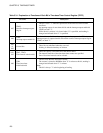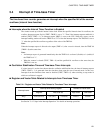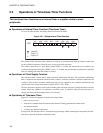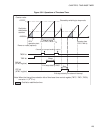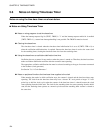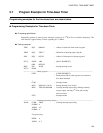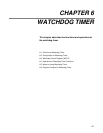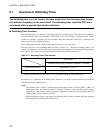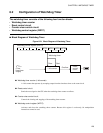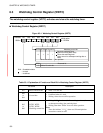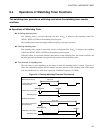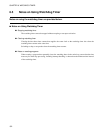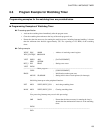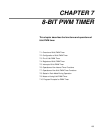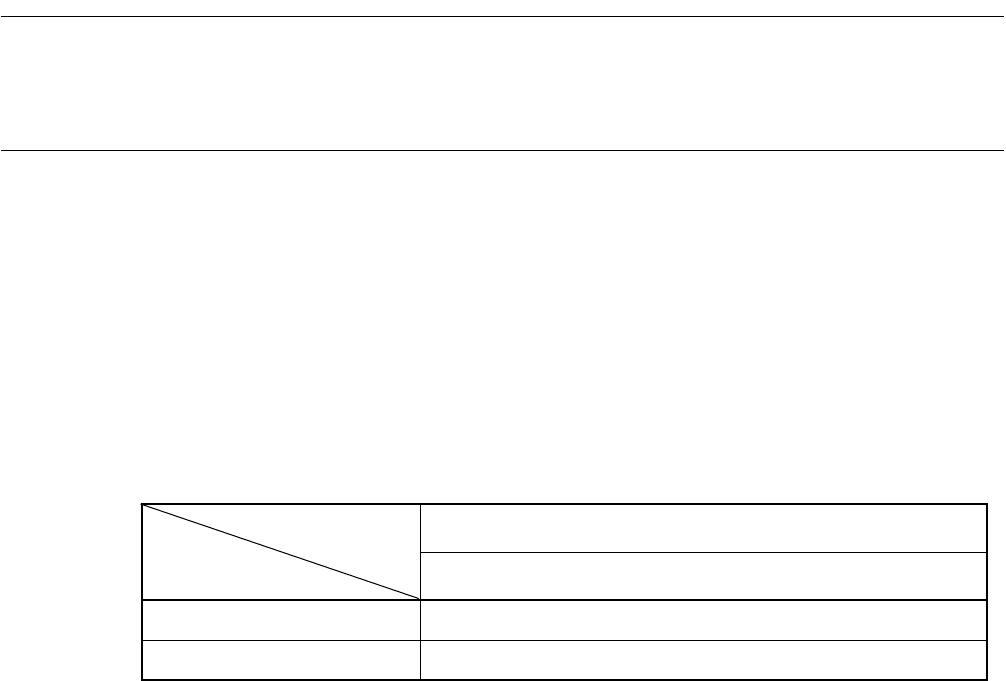
128
CHAPTER 6 WATCHDOG TIMER
6.1 Overview of Watchdog Timer
The watchdog timer is a 1-bit counter that uses output from the time-base timer, based
on oscillation frequency, as the count clock. The watchdog timer resets the CPU when
not cleared within a specified period after activation.
■ Watchdog Timer Function
The watchdog timer is a counter for preventing programs from hanging up. The timer must be cleared at
specified intervals after being activated. If the timer is not cleared within a specified period of time
because, for example, a program goes into an endless loop, the timer sends to the CPU a watchdog reset
having a period of four instruction cycles.
The watchdog timer uses the output from the time-base timer as the count clock.
The time intervals for the watchdog timer are listed in Table 6.1-1 . When the watchdog timer is not
cleared, a watchdog reset occurs following the time between the minimum time interval and the maximum
time interval. The counter must be cleared before the time of the minimum time interval.
See Section "6.4 Operations of Watchdog Timer Functions " for details on the maximum and minimum
time intervals of the watchdog timer.
Notes:
• The watchdog timer counter is cleared when the time-base counter is cleared (TBTC : TBR = 0)
while output from the time-base timer is selected. Therefore, if the time-base timer counter
supplying the count clock is cleared repeatedly within the time interval of the watchdog timer, the
watchdog timer does not function correctly.
• When switching to sleep or stop mode, the watchdog timer counter is cleared and stops operating
until returning to normal operation (RUN state).
Table 6.1-1 Watchdog Timer Time Intervals
Count clock
Time-base timer output (Oscillation frequency: 12.5 MHz)
Minimum time interval Approximately 335.5 ms *
Maximum time interval Approximately 671.0 ms
*: (number of counts of time-base timer (2
22
)) × (oscillation frequency (F
CH
) divided by 2)



